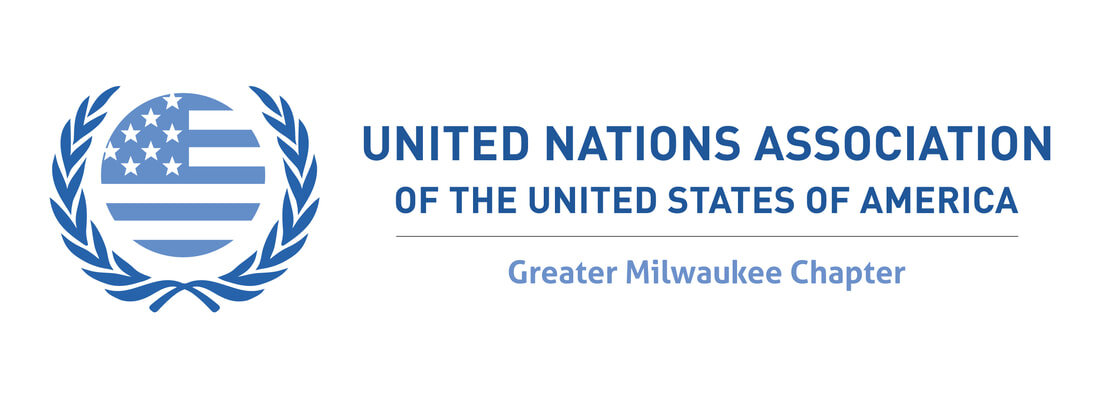United Nations Association of the USAWestern Regions Climate Forum 2022 Declaration and Appeal to USA Government and Policymakers on Climate Action
September 2022
Purpose of the Declaration and Appeal
The United Nations Association of the USA (UNA-USA) is a movement of Americans dedicated to supporting the United Nations. With over 20,000 members (60% under the age of 26) and more than 200 chapters across the country, UNA-USA members are united in their commitment to global engagement and their belief that each of us can play a part in advancing the UN’s mission and achieving the Sustainable Development Goals, [from https://unausa.org/mission/], including advocating for action to combat climate change.
UNA-USA has endorsed the statement issued internationally in June 2022 by the World Federation of United Nations Associations (WFUNA), expressing ‘deep concern’ for the planet and its inhabitants, noting that “progress in achieving goals” and fulfilling international agreements has been ‘very slow,’ and calling for “governments and all stakeholders to urgently increase efforts.”
The purpose of this declaration is to raise awareness about the most compelling and urgent solutions to halt, in a just and sustainable manner, global warming and irreversible climate change that is an existential threat to humanity, and to mobilize support and advocate for immediate concerted action by elected representatives, policy-making officials, civil society, and the private sector at the local, state, and national level.
Concerted Roles of the UN and its Member Nations
The United Nations Intergovernmental Panel on Climate Change (IPCC), working with thousands of climate scientists from around the world, has put forward consensus scientific findings and recommendations on carbon emissions, global warming, and the environmental consequences, which pose an existential threat to humanity. The IPCC’s sixth assessment report of 2021-22 sounds like a dire warning about the consequences of inaction and the closing window for staying below 1.5°C (2.7°F) of warming.
Parties to the UN Framework Convention on Climate Change (UNFCCC) agreed in the 2015 Paris Declaration to set nationally determined commitments (NDCs) and take action to reduce carbon emissions that would limit global warming within 1.5°C (2.7°F). At COP 26 this shortfall in commitments was highlighted and the challenge for COP 27 in November 2022 is to accelerate global climate action through emissions reduction, scaled-up adaptation efforts, and enhanced flows of the requisite finance.
As a major contributor to carbon emissions, the USA has the means and moral obligation, and therefore a global responsibility, to provide leadership to combat climate change. The US Inflation Reduction Act of August 2022, which provides significant incentives to reduce carbon emissions by 40% by 2030, is a welcome move in this direction, but more needs to be done, especially more ambitious policy and forceful implementation to reduce and phase out fossil fuels, building on actions being taken by state and local government, the private sector and civil society.
The knowledge and technology to address climate change are known. Political will is lacking. Complacency cannot be accepted. As the UN Secretary-General, Mr. António Guterres, stated in July 2022, “No nation is immune.” The crisis is unequally distributed but increasingly affecting everyone.
Urgent Action Needed to Combat Climate Change
We, the UNA-USA, appeal for urgent action to combat climate change:
President Biden should declare a Climate Emergency under the National Emergencies Act and exercise his full executive authority to implement strong actions on climate, and the USA should support the UN Secretary-General’s call for all member countries to declare a Climate Emergency at COP 27, taking note of the Secretary-General’s admonition of “Collective action or collective suicide.”
Without further delay, all governments including the USA should explicitly agree at COP 27 to:
phase out coal in the US and other developed countries by 2030 and other countries by 2040, and
phase out oil and gas by making steep cuts immediately, acknowledging that peak greenhouse gas emissions must peak no later than 2025;
reinforce their agreement (made at COP26) to cut methane emissions by 30% by 2030;
target actions at specific sectors that generate carbon emissions (cement and steel production, power generation, transportation, military emissions, chemical and plastics manufacturing, agriculture, fisheries, and forestry), through a reordering of incentives, subsidies, and penalties to improve and scale up new and renewable energy technologies, sequestration, and other means to transform production to achieve zero net emissions and contribute to repurposing the economy for a just transition.
Call for immediate government budgetary allocations and accelerated private sector investment funding with an environmental, social, and governance approach for climate change adaptation as well as mitigation, in particular:
specifically, recognize and provide resources for those most affected and vulnerable to loss and damage, acknowledging the principle of justice and the officially recognized human right to a healthy environment adopted by UN member states in 2022; and
provide financial means through the USA and other governments paying their fair share of commitments to the existing Green Climate Fund and other measures to address the existential threat.
Governments, in partnership with all stakeholders, should comply with existing agreements and treaties, as well as intensify programs and funding to protect and improve the management of land and ocean ecosystems and biodiversity, thus enhancing adaptation and the mitigation of climate change.
USA government should support the climate-related sections of the UN Secretary-General’s
2021 program elaborated in “Our Common Agenda;” and follow-up the UN’s consensus for a “Summit of the Future” in September 2023 that is proposed to raise collective commitments for urgent climate protection and the related Sustainable Development Goals of Agenda 2030, and collaborative stewardship of the planet’s resources.
